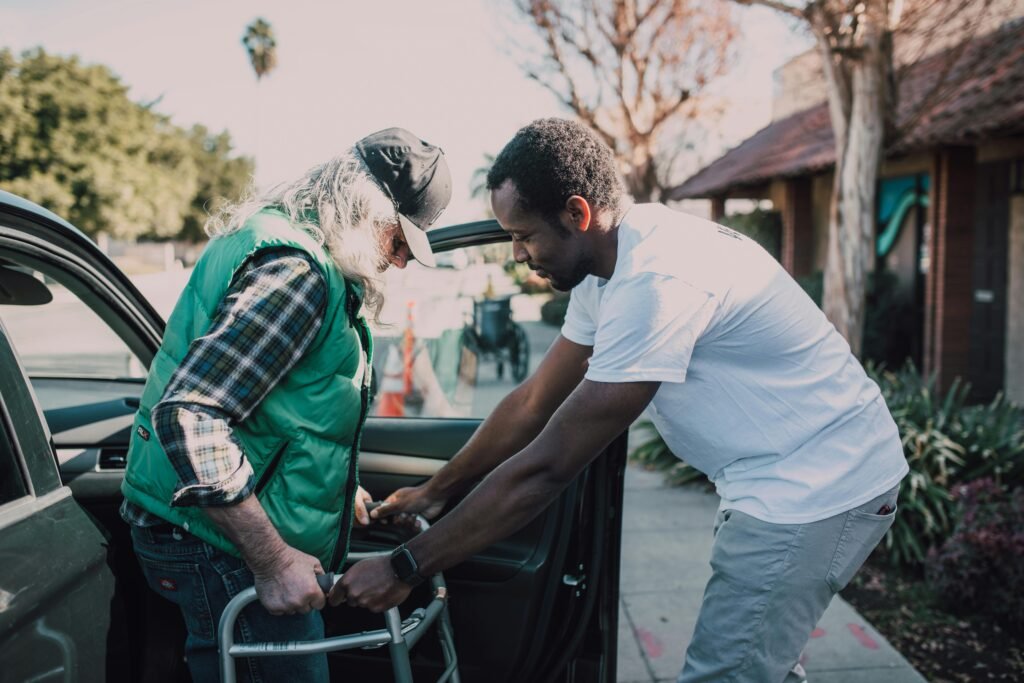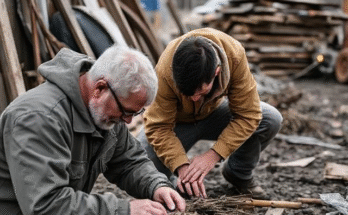Introduction
Kindness is one of the greatest powers we have in this world. It does not ask for any amount of money, no physical grace, no special skills. One easy, compassionate phrase has the power to bring hope to someone struggling. It can heal emotional wounds and enhance one’s mood.
In a world of immense advancement, people forget the power of compassion. But a few timely, kindly words can change the course of someone’s life.
The consequences of compassion may last a lifetime. An inspiring teacher’s words may encourage a student to pursue their dreams.
How words of kindness resonate with emotions
Words have power. They can build someone up or tear them down. On the day someone is sad, discouraged, or lonely, kind words are like medicine. Simple things like “I believe you” or “You are not alone” make a person feel seen and heard.
The at-risk, the people who are going through hard times — they often feel invisible. The person gets a feeling that no one gives a care about them. But when this individual speaks kindly to them, someone sees them, understands them.
Unfortunately, they may need that type of emotional support to restore confidence and hope. It might seem like the smallest gesture, but a few kind words can turn a person’s world around.
It’s not only what you say but how you say it. So, a warm tone and soft delivery can go a long way toward solving that problem. Even a simple “thank you” can come off as cold when delivered curtly, or heartwarming when offered with genuine appreciation.
Your body language says a lot! A smile, a pat on the back, or some eye contact can magnify the power of kind words. Non-verbal cues demonstrate that you’re completely engaged and genuinely interested in the kindness you’re offering.

Compassion in Daily Life
Acts of kindness don’t have to be over-the-top. Its existence is apparent in normal talk. Here are a few easy ways to put kind speech into practice:
A Little Kindness in the Conversation
Your undivided attention is a gift, and when someone receives that, they feel valued. Sometimes a simple thank you or ’I appreciate you’ can brighten up somebody’s day.
A word of encouragement, even if it’s to a friend, colleague, or stranger, might uplift them in their confidence and outlook.
Compassion in Action
Simple displays of kindness, like holding a door or helping someone carry their groceries, or letting someone sit before you in line for a train or a bus, have great power.
But fridge-filling acts to positivity such as paying for coffee for a stranger, leaving behind a nice note or donating items to a shelter.
Compassion at Home
Acknowledging the little things family members do helps to strengthen relationships.
Write a handwritten note, prepare their meal of choice, or hug them tight. Calling on each and offering a listening ear creates, a loving environment at home.
Compassion at Work
Complimenting a coworker for their hard work or appreciating them for their contributions can encourage them. Showing up for a coworker to help meet a deadline or fill in when they need it promotes employee unity.
Introducing yourself with a smile, a casual conversation, or light-hearted tease can be a good thing in the workplace.
Compassion in Community
Being respectful of others, greeting to neighbors, putting back shopping carts and keeping communal areas clean creates a sense of community.
The act of giving can be as simple as donating time to your local charities and events in your community. When we support small business and leave good reviews, we help those small businesses survive.

What Science Says About Appealing to Compassion
Studies show that positive language causes the release of feel good, chemicals like oxytocin and serotonin. That’s like our brains giving us a giant hug inside.
A few words of compassion can do wonders for our mental health. They boost our self-esteem, lower stress and help stave off depression. The power of “You’re doing great!” turn a bad day into a good day.
Our bodies resonate with compassion too! Research has shown that the sound of kind words can lower our blood pressure, decrease our heart rate and even strengthen our immune system.
That’s a kind of stimulant for health, like a tonic, free, and without side effects!,
The Role Of Compassion In Healing Emotional Pain
An emotional wound is not just a romantic wound. It can come from the death of a loved one, rejection, insecurity. While it may be difficult to offer joking words to a grieving family, compassionate words are comforting in these moments. They remind people that they are loved and valued, even when they feel lost.
Here’s how sharing compassionate words helps the healing process:
- They Give You Hope: There are times in life when the struggle feels like all there is, and those kind words are a reminder that there are better days ahead.
- They Build Resilience: Positive reinforcement such as “You are strong” or “You can overcome this” help individuals find strength within them.
- They Create a Sense of Connection: To know that someone cares makes suffering less painful.
- They Relieve Stress: Kindness releases molecules of well-being in the brain, helping a person feel calm and happy.
Challenges to Compassion
In others, a direct display of compassion could be uncomfortable or even counterproductive. But keep in mind that compassion is a universal language. It exists in different forms in different places, but this is its crux.
We need to show we care and comfort that we may choose not to say out of fear of weakness or rebuttal. But the risk is worth taking. The worst outcome is a couple of awkward seconds, but the best? You may change someone’s life.
In the beginning, it could be something very simple, like heaven can challenge ourselves: say one compassion thing per day ог listen actively so that you can better understand people, and don’t forget, it’s perfectly OK to be kind to yourself as well! The more we do it, the more it flows naturally.
Making Compassion A Habit
- Choose Your Words Carefully: Think before you talk. Use words that build up and inspire rather than tear down.
- Be Thankful: Thank those around you. Expressing gratitude can do wonders.
- Listen More: Sometimes the greatest act of compassion is not judging someone and just listening.
- Give Compliments: Pay attention to positive traits in people around you and voice what you notice.
- Spread Positivity: Online Use social media to share encouragement and support.
It doesn’t hurt to be kind : https://youtu.be/3_GBKt99MFI?si=wYBo_DOMBQb8D8aM
The Intent of Compassion in the Midst of a Difficult Situation
It’s easier to be compassionate when things are going well. But being kind in a time of war? That’s a remarkable ability. A simple statement like “I understand how you feel” or “Let’s find a solution together” can go a long way in diffusing tension and paving the way for a resolution.
When someone’s hurting, we fumble for the right words. But sometimes a “I’m here for you” is enough. Your presence and your ear can be the most gracious, loving gift of all.
Conclusion
A little kindness, as gentle as it is effective, can cause broken hearts to heal and make the world a brighter place. Both something that brings comfort and hope, something that inspires to those who need it the most.
These often simple acts of kindness work together to spread positivity and good will among everyone around us.
Be kind with our words, lift each other up, and tell people they’re not alone. A simple kind word may seem small, but to someone suffering, it feels like the whole world.
Please start today—go say something nice to someone, you’ll see how it changes theirs and also your life!



